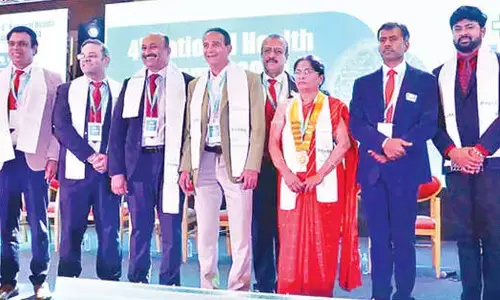Is being online safe for kids?
 Is being online safe for kids?
Is being online safe for kids?More than half of parents admit to being under confident in knowing how to keep themselves safe online, while 61% state that they have adequately educated their children in this important aspect, according to new research by OLX India.
The dichotomy points to having high awareness about the need to be safe online but exhibits a lack of know-how and the tools required to do so. Further, it suggests that parents are unsure about practices to adopt to be safe online and hence are not able to direct their children either, but mistakenly feel their children are adequately educated.
The new research conducted on the occasion of Global Day of Parents1 was commissioned to understand digital literacy habits, parent-child shopping behaviour and other aspects related to parenting. The research also unearths other interesting dynamics around the quality of time spent together as a family and the attitude to old product of their children that are no longer in use. The study was conducted with 4000 parents across Bengaluru, Chennai, Delhi, Hyderabad, Kolkata, Mumbai and Pune.
This new study confirms OLX's Internet Behaviour Survey released earlier in the year on the occasion of Safer Internet Day (5th February). The survey in February revealed that a majority of Internet users neglect cybersecurity best practices in their own personal lives, and do not monitor the content their kids view online. 57% respondents showed negligence towards their own safety – both online and offline, while 60% admitted to not monitoring the content their kids viewed online.
The survey reveals that pester power has now moved to influencing online shopping decisions as well! 52% parents report that they have to deal with this behavior continuously. Also, younger parents (25-35) report higher levels of pestering for online shopping than older parents.
While pester power is driving online shopping decisions, parents however do conduct their due diligence prior to their buys online. 36% of parents said that they prefer pre-researching prior to buying, while 29% admitted to shopping impulsively without any research.
Interestingly, despite the pester power, it seems that more parents are able to be judicious in spending. 69% say that they are able to exercise caution, preferring to save for their children versus getting carried away. 31% parents acknowledged overspending.
A majority of the parents, 56% also said that they do make it a priority to spend time with their children, though indoors. The survey reveals that most of this time together is spent over meals!
While there is always sentimental value attached to children's old products – lesser number of parents hoard their children's used products.
31% parents said that they like to hold on to their children's stuff while a majority prefer to give it away. 43% of parents said that they gave it away or disposed of it, while 25% prefer to recycle it by selling it to others. The survey reveals that on average, a household has 5 products of their children that are no longer in use lying around the house.











